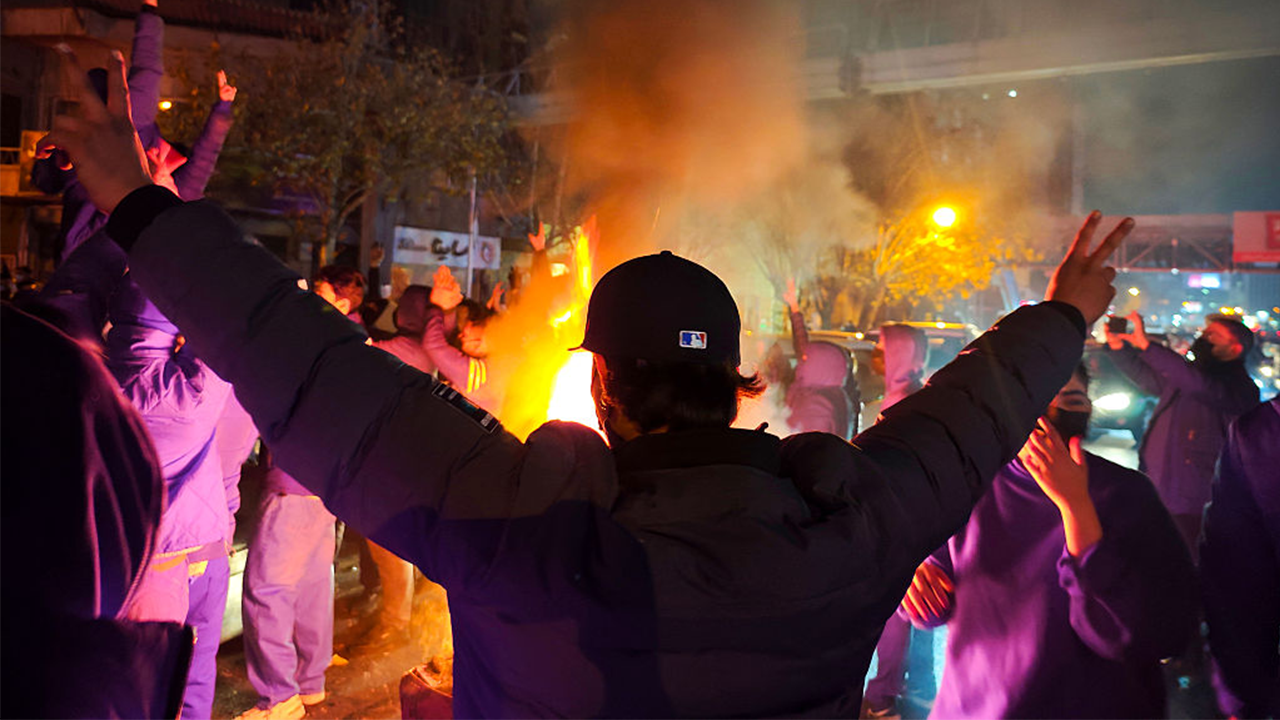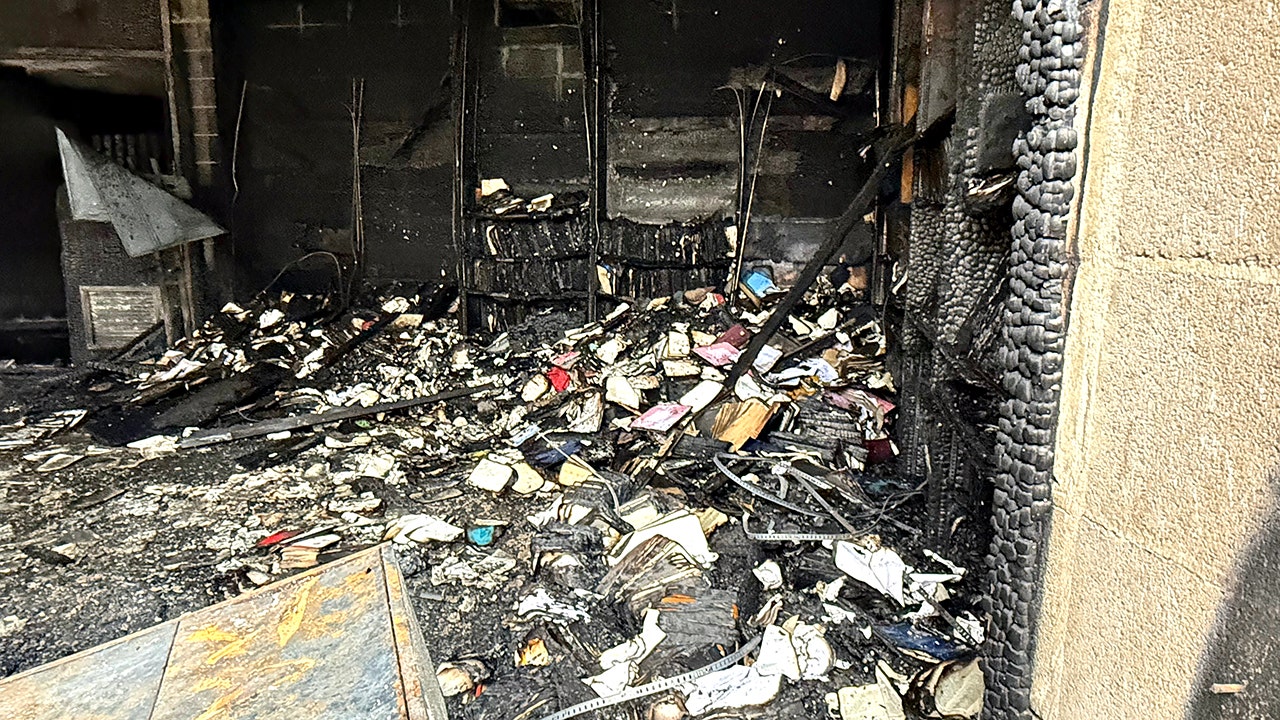A new, unvarnished account of the deadly German U-boat war

The post-war narrative of the German U-boat efforts follows several stages: the first “Happy Time,” followed by the second “Happy Time,” and then utter destruction by the Allies.
In reality, the history is unsurprisingly more complicated than that — as are the humans who waged the war.
In his latest book, “Wolfpack: Inside Hitler’s U-Boat War‚” eminent scholar Roger Moorhouse peers deeper into the historiography to deliver a full, first-hand account of the German U-boat war and the men who waged it. The book officially released in the U.S. on Tuesday.
Moorhouse recently spoke to Military Times to dispel myths, discuss the rampant fungal and sexually transmitted infections that plagued the Kriegsmarine and explain why he pushed back on being called a “military historian.”
The interview has been edited for brevity and clarity.
Let’s talk about perception vs. reality of the Battle of the Atlantic. Winston Churchill famously declared the only thing that truly frightened him during World War II was the U-boat threat, yet the reality was that the capability of the German Navy was somewhat limited. In fact, historian Gerhard Weinberg has suggested that the Germans would have been better off in WWII if they had built no navy at all and devoted those resources to the army and the Luftwaffe. In your research for “Wolfpack,” do you find that a fair statement?
That’s an interesting position that Gerhard Weinberg takes. I wouldn’t go that far. I would certainly say that the Germans would have done better to not have built their surface fleet, because the surface fleet was vastly expensive and achieved precisely nothing in sort of strategic terms in World War II, and they could have devoted all of that energy and manpower and resources to the U-boat fleet instead. I think the U-boat arm did have strategic potential, so in that sense, I would disagree with Weinberg’s statement there.
The idea of using the U-boat arm to attack British shipping lines to essentially strangle Britain out of the war, or at least to force Britain to negotiate — I think that was an idea that had legs, and this is where Churchill’s comment came from. Churchill writes that after the war, when he’s writing his memoirs, but he was referring to a very specific time, which was the winter of 1940- ’41.
At that point, bear in mind that British imports in January ‘41 versus January 1940 had precisely halved, and to a large extent, because of the predations of the German U-boat, so at that moment, is perfectly justifiable for him to express that concern.
In terms of historiography, what I think has happened is that that sentiment that he expressed has been kind of expanded to cover the whole U-boat war, as if we were under the same grievous threat. And that really isn’t the case. The second half of the war, it’s effectively a turkey shoot. It’s murderous.
You write about these unimaginable conditions aboard the subs — the psychological strain, the staggering 75% death rate, which is the highest of any branch in the German armed forces. Can you talk about the conditions that these men operated under?
In short, they’re horrific. To some extent, I think the same situation very broadly applies across U-boat forces in World War II because this is still a relatively primitive piece of technology. In WWII, there are generally submersibles, rather than submarines, so they spend most of the time on the surface. In the German case, they can dive for something like 24 hours on average. That’s quite a good maximum time that they can dive for. That means they’re being tossed around quite a lot.
A U-boat … is a relatively small thing, something about 65 meters long. You have these huge diesel engines, electric motors, torpedoes, bunks for the crew and all the rest of it. So imagine that space. They’re living very much on top of each other. Everything is damp all the time. There’s mold. I mean, there’s accounts of U-boat crews watching the mold literally grow on the inside surface of their of their vessel.
They have skin diseases, because they don’t wash effectively. Fresh water is rationed. You can have a sort of splash in a bowl of fresh water if you want, but that’s all you’re going to get for the day. Because of the lack of space, they’re allowed to take one change of underwear for an eight-week patrol. They’re wearing the same clothes every day, the sweat, the [body odor] … that aspect of it is rather unimaginable.
Adding to that is the ubiquitous presence of diesel, because they’ve got two massive diesel engines in a U-boat. The fumes are everywhere. So that mixture of all those things, if you could imagine, is what they used to call the U-boat stink, which comes across very strongly from all the memoir accounts.
There’s one account that I mention of a U-boat pulling in, and they open the conning tower hatch, and then the shore crew who are there to help them out reel backwards as the stench comes out of the boat. It has a knock-on effect as well, on the submariners’ health, because they’re living in such sort of filthy conditions on top of each other, hot-bunking all the time. All of the men hot-bunk besides the officers. So as soon as someone has a skin infection or a fungal infection, which is also very common, or things like scabies, it spreads very rapidly through the ship.
Sexually transmitted diseases also spread fairly quickly, and you had a regime whereby infection was then cause for punishment. That’s quite an interesting aspect of the narrative.

You tell the story of “Wolfpack” from the perspective of the Germans and offer a rare look inside the minds and missions of the U-boat crews themselves. Can you talk a little bit about your primary source research and what was all involved in telling this story?
One point that’s worth making, and this sort of this illustrates the wider collapse of the U-boat war, is that [the British] interrogation reports, there are a lot of them for 1940, ’41, ’42. In 1943, there are fewer. In 1944, there’s fewer still, and then they sort of stopped midway through 1944, which I found a bit baffling at the time, because I was systematically working through them. Then you realize why that is, and it’s because Allied countermeasures have become so effective by that point that there are basically no longer any prisoners to take. They don’t have the chance to surface. So that in itself is quite instructive.
The other thing is, after that first generation of crews and commanders has really been wiped out by 1941, you’ve got the next generation that are, of necessity, less well trained, less effective and less effective at countering what was fast becoming very effective Allied countermeasures.
The crews themselves, the quality of them, deteriorates so much that by the latter stage of the war, the German U-boat arm is pulling naval officers from desk jobs, [who are] given a perfunctory bit of training and sent out on patrol. It sort of becomes something of a perfect storm.

Later histories have painted Karl Dönitz as tactician with little interest in the potential of technology to extend the reach and impact of his offensive. How did the British evolution of defending against the U-Boat threat versus the German lack thereof, affect the German U-boat campaign?
I would push back against that, to be honest. Dönitz is flawed in many ways. He’s a convinced Nazi for one thing, but I don’t think he was necessarily blind to the technological possibilities and technological advancements.
Another strand of the book is the way in which you have this technological game of cat and mouse between the Allies and the Germans. It’s not just this one-way street in which the Germans are constantly having to play catch up and having to adapt to Allied innovations.
Th Alberich sonar cloaking, for example, which they use very effectively in late 1944, has to then prompt a response from the Allies. There’s not this sort of a bullish, ‘Let’s just carry on with what we’re doing, lads, and we’ll be fine’ attitude. Dönitz withdraws his wolfpacks from the Atlantic in May 1943 after the so-called ‘Black May,’ and the reason that he gives is that the German U-boat arm is technologically at a disadvantage from the Allies and they want to rectify that disadvantage before they go back into the field.
What’s decisive in the wider grand scheme is the confluence of the logistical — air coverage across the whole of the Atlantic, where there is nowhere for the U-boats to hide. I mean, that was crucial. Enigma was crucial. Having persistent oversight of Enigma traffic was crucial. The development of aerial radar is, if we’re going to pin down one thing, probably the most decisive.
More U-boats are sunk by aerial attack than by anything else, which cuts against the stereotype of the effectiveness of depth charging. That’s what we see in the film “Greyhound,” for example. That’s the popular image of the countermeasures against the U-boat. Ultimately, though, it’s the use of radar-equipped aircraft.
My personal favorite sub story is that of U-1206 and how it was thwarted by its new-fangled toilet system, and the crew was forced to surface and be rescued by a Scottish fisherman. Do you have a story that you came across that might not have fit the narrative for “Wolfpack,” but has stayed with you?
One that sticks with me is U-977, which is one of the two vessels that went to Argentina at the end of the war. [Dönitz] gives the order to his own former fiefdom to raise a black flag and to surrender to the nearest Allied port. To a lot of them, the idea of raising a black flag and then sailing to surrender your vessel to the enemy was something that ran counter to everything they believed in, so a vast majority opted simply to scuttle their vessels. Some of them chose to escape. Two vessels opted to try and go to Argentina, and one of those is U-977.
Interestingly, they took a poll from the crew and said, ‘What do you want to do?’ Which I thought was interesting because these are representatives of a dictatorship, after all, and they’re having a democratic vote. Amusing moment.
But there’s the last speech that the commander gives to his men before they hand themselves over, where he commends them for their effort for what they’ve done in terms of seamanship … and then he said, which I thought was very telling, ‘We at least have had four months more freedom than any of our fellows.’ That’s one that does stick with me.
I’m occasionally accused of being a military historian, [but] I always push back against that a little because I think what’s to me more significant are the human stories. These are human stories in a military setting, rather than being pure military history to me. I’m interested in telling those human stories, and I hope I’ve managed to achieve that.
Claire Barrett is the Strategic Operations Editor for Sightline Media and a World War II researcher with an unparalleled affinity for Sir Winston Churchill and Michigan football.
Read the full article here









